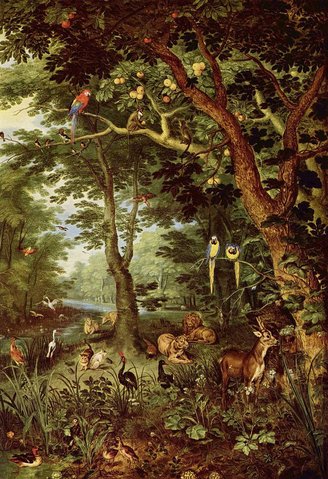The certitude that there is no salvation is a form
of salvation, in fact it is salvation.
— E.M. Cioran
###
I’m curious whether the present “shelter in place” regime will have any effect on our collective beliefs about an afterlife. In the US, about 7 in 10 people believe in heaven, while (happily) fewer of us, about 6 in 10, believe in hell where its victims are eternally torment. Of the heaven-believers, almost all think they’re going there — or at least their spirits will. For most of us, heaven is spirits only.
The chief motivator for our irrational belief in heaven (lacking empirical evidence and therefore irrational) is, apparently, the anticipation of being reunited with our loved ones. Not just for a year or decade or century, but forever. So I wonder whether the experience of hanging with our nearest and dearest 24/7 for the past several weeks will have a salutary effect on this presumably delightful expectation? Or will those folks who claimed to relish the thought of being eternally with their kith and kin now be having second thoughts? Only a Pew poll after this is all over will tell us if “forever” seems like an awfully long time.

Call some place paradise, kiss it goodbye. (“Paradise” by Jan Brueghel the Elder, public domain)
Heaven and hell are, of course, what’s promised in the Bible, according to what Jesus taught—see Matthew 25 for the parable of the sheep and the goats. The believers (sheep) are destined for eternal happiness in heaven, while the unbelievers and/or sinners (goats) are headed to the flames of hell. Forever. And, just to seal the deal, the heavenly dwellers get ringside seats from where “in order that the happiness of the saints may be more delightful” they get to “see perfectly the sufferings of the damned.” That’s from Thomas Aquinas, who must have had some really shitty neighbors.
If any of this sounds a bit unlikely to you, take heart. It’s not what Jesus said at all, according to Biblical scholar Bart Ehrman in his latest book, “Heaven and Hell.” Heaven isn’t someplace in the clouds, it’s right here. At the Day of Judgment, God will institute a second paradise (the Garden of Eden being the first) right here on Earth. The good guys will have life breathed back into their dead bodies and will live again — hopefully in their 20-year-old toned bodies, not their 90-year-old cancer-ridden ones. More to the point, Jesus never taught that the baddies would be tortured eternally, only that they would be annihilated. For them (us), game over. For the rest, hanging out with loved ones, happy happy Groundhog Day forever. I know which I’d rather.
So where did heaven and hell come from? Not from the Jewish Old Testament, where a few references to “sheol” have been mistranslated as “hell” (—it actually means pit or grave, according to Ehrman). For that matter, ancient Jews didn’t think the soul could exist outside of the body — that all came from early Greek philosophers like Plato.
So if there’s no heaven or hell, what’s left for an afterlife? Reincarnation? (I want to come back as an eagle.) Homer’s gloomy netherworld?
The question is, of course, whatever the option, would you really want it if it 100% meant “forever”? Eternally singing God’s praises with those damn harps in the background? Being with your loved ones year in, year out? Watching from your safe refuge as our dying sun engulfs the Earth…and then some? All in all, wouldn’t a quick snuff — “Out, out brief candle” — be infinitely preferably than eternally not dying?
Even soaring on the wings of an eagle would eventually get old.
CLICK TO MANAGE